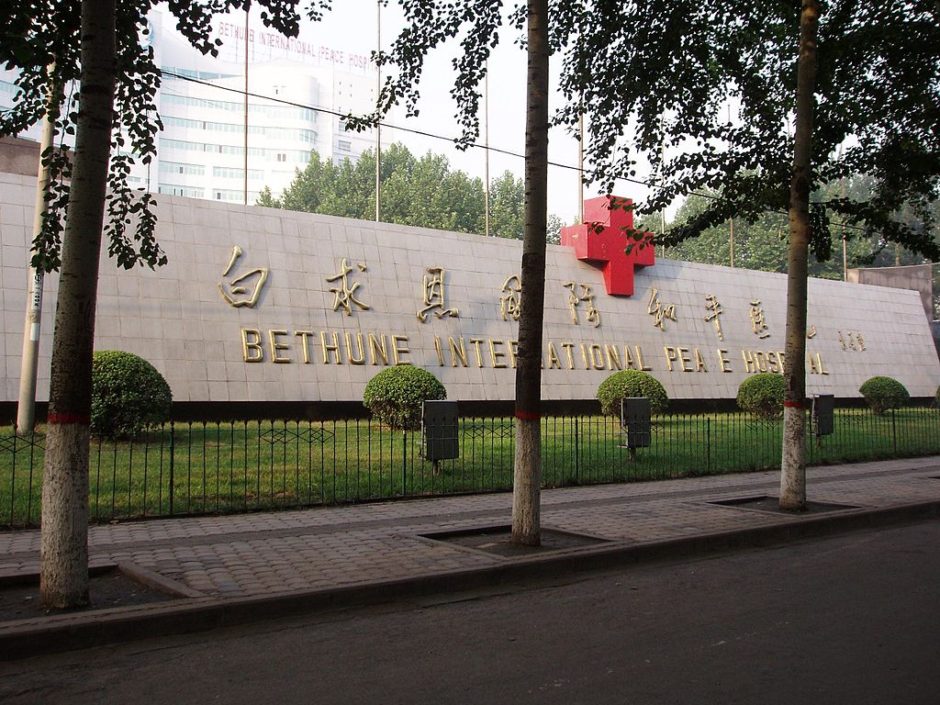Norman Bethune is Canada’s gift to China.
A physician who devoted body and soul to the cause of Chinese independence, Bethune is probably the most famous Canadian ever to set foot in China.
A veteran of World War I and the Spanish Civil War, he volunteered his services to China in 1938 as it struggled to roll back Japanese aggression.
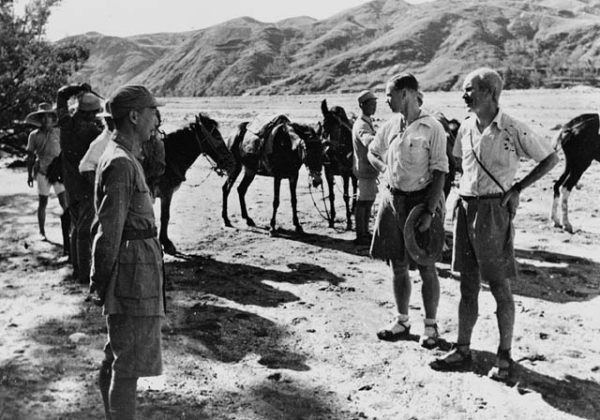
In China, Bethune worked as a surgeon, trained doctors and wrote and illustrated medical manuals. While performing surgery on a Chinese soldier, he accidentally cut his finger. Some days later, on October 29, 1939, he died of blood poisoning. He was 49.
Shortly afterwards, Mao Tse-tung, the head of the Communist Party and the future leader of the People’s Republic of China, paid tribute to Bethune, calling him “noble-minded and pure.”
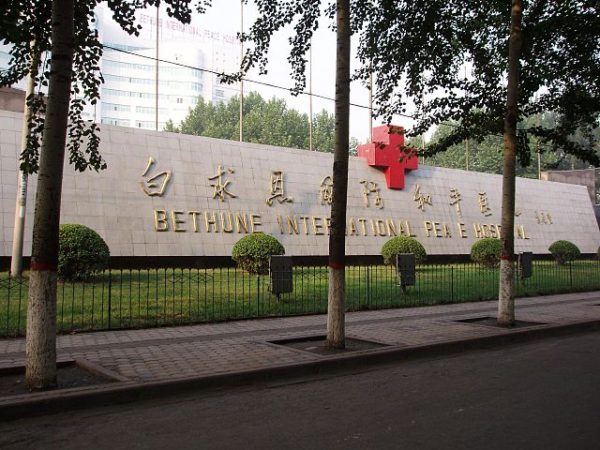
Today, Bethune is a heroic and larger-than-life figure in China, with countless memorials extolling him as a great man who served the Chinese people selflessly. Schools and hospitals bear his name as well.
No Canadian is as admired in China as Bethune.
In Gravenhurst, a small town 150 kilometers north of Toronto, Bethune is well regarded too. Gravenhurst — the gateway to cottage country — is where he was born and lived for three years.
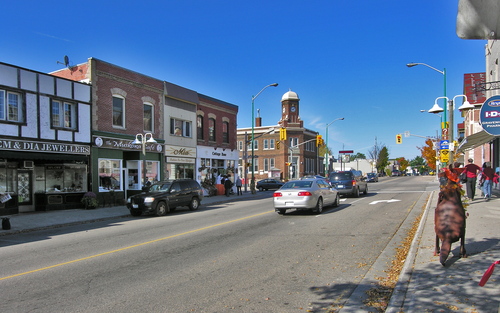
A statue of Bethune stands next to the 115-year-old opera house, the grandest building in Gravenhurst, and a restaurant on its main street, Bethune’s Bistro, is named in his honor.
Bethune Memorial House, a modest museum a few blocks away from the opera house, chronicles the arc of his career from chest surgeon in Montreal to martyr in China. It’s filled with memorabilia about him.
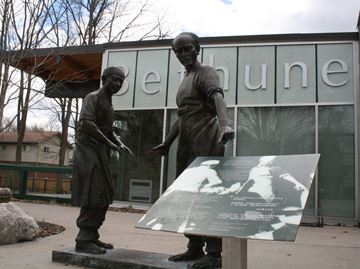
Adjacent to the museum is a green clapboard Victorian house where he was born and lived for the first three years of his life. The sparsely-decorated rooms are furnished with late 19th century furniture.
By no coincidence, many of the museum’s visitors are Chinese tourists from China and Chinese Canadians.
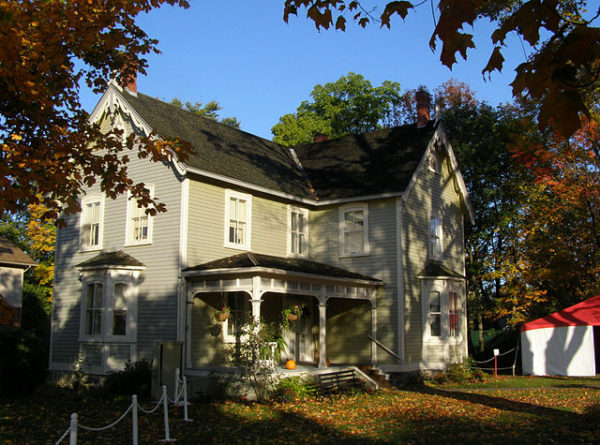
The good doctor was the son of Malcolm Nicolson Bethune, a Presbyterian minister from an old Scottish and French Huguenot Canadian family, and of Elizabeth Ann Goodwin, the daughter of a British carpenter.
Bethune studied at the University of Toronto, but in 1911 he took a break to work in a lumber camp in northern Ontario. During World War I, he was a stretcher bearer in the Canadian army’s medical corps. After being wounded, he returned to Toronto to finish his medical studies.
One of his classmates, Frederick Banting, would be the co-discoverer of insulin and a Nobel Prize laureate.
Bethune married a Scottish woman, Frances Campbell-Penney, in 1923. Theirs would be a stormy marriage.
From 1928 onward, he worked as a thoracic surgeon in Montreal’s Royal Victoria Hospital. During this period, he designed medical instruments. One of them, the Bethune rib shears, is still used by surgeons.
A man of conscience, he established a free clinic for the unemployed in 1935, at the height of the Depression. A year later, he joined the Communist Party. “I want to see people getting a square deal, and I hate fascism,” he is supposed to have said.
In 1936, he joined the republican side in the Spanish Civil War. His contribution to the war effort, a mobile blood transfusion bank, saved many lives.
Meanwhile, war raged in China. Japan, having invaded Manchuria in 1931, launched another invasion of China in 1937. Japan’s incursion prompted Chinese nationalists and communists, both claiming to be the legitimate government of China, to form an alliance to counter Japan.
Bethune arrived in China in 1938 with medical supplies in tow. Mao Tse-tung invited him to supervize a hospital in the province of Yenan, but he preferred to treat wounded soldiers on the front lines. Realizing he was one of the very few doctors in the region, he decided he could be more valuable as a teacher. He set up classes in first aid, sanitation and basic surgery. And he established a teaching hospital.
In the next few months, Bethune returned to surgery, throwing himself into it with his usual passion. In one prodigious 70-hour stretch, he operated on 115 soldiers.
With his tragic death, China lost one of its finest friends.
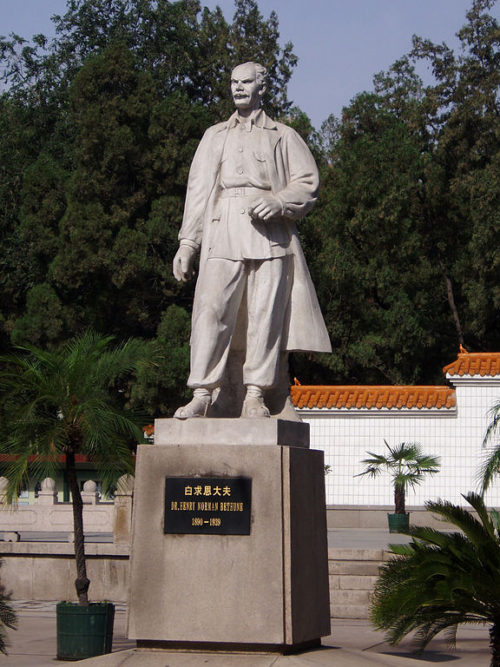
By way of reciprocation, China remembers Bethune as an extraordinary individual who made the ultimate sacrifice for a country he hardly knew.
And in Gravenhurst, his life unfolds in Bethune Memorial House, the only museum of its kind in Canada.
